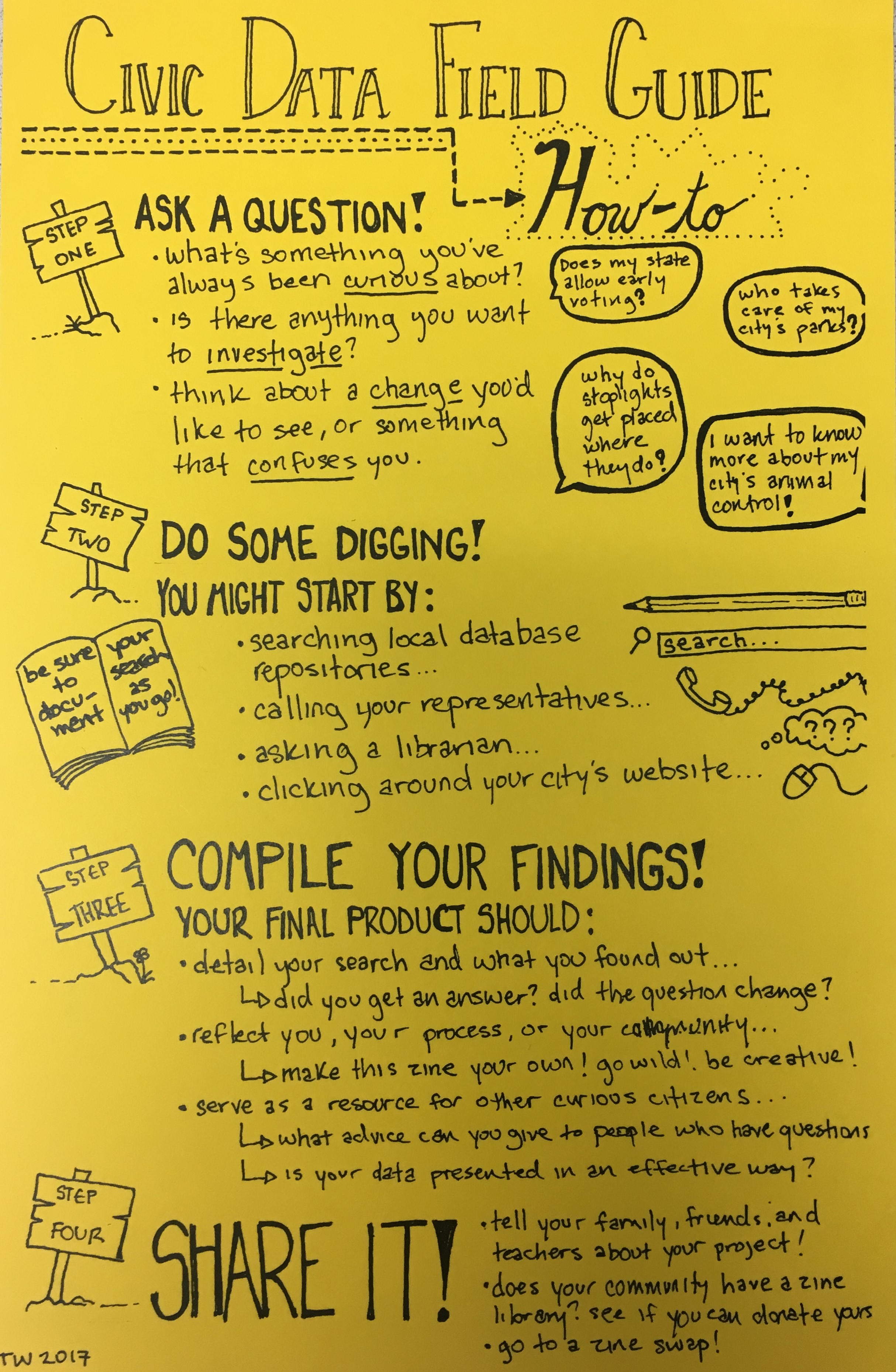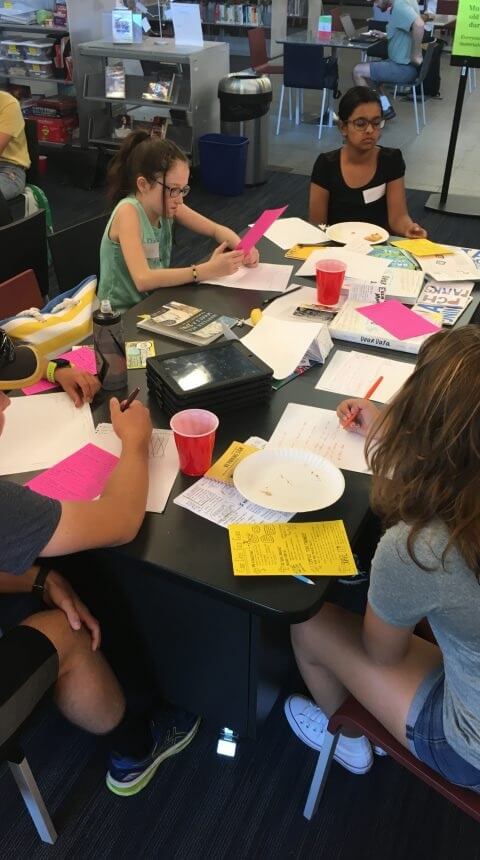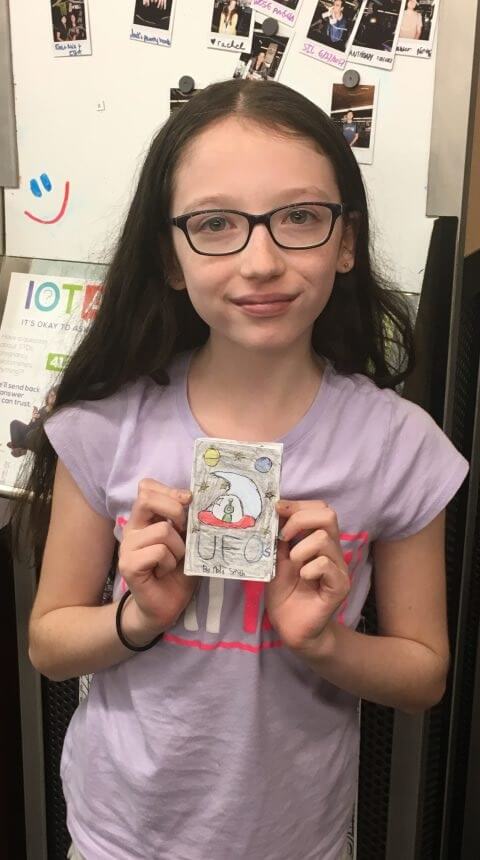Shark attacks, roller coaster accidents, UFO sightings and public swimming pools. What could these possibly have in common, besides being plot points in a made-for-TV movie? In fact, all of these are datasets that we encountered during this summer’s Data Zine Labs Intensive at CLP – Squirrel Hill! One of the initiatives of the Civic Information Services team is to promote data literacy through external outreach, special events and internal programming. If you’ve kept up with our progress so far, you know that our contributions to the Super Science Kits have explored data literacy skills like map-making, data visualization and many more. We loved seeing our elementary school friends engage with some of the tools and techniques of data science, and are excited to continue our work with that age group. However, we are always on the lookout for ways to reach new audiences, and teens were the target of our latest endeavor.
With the knowledge that The Labs@CLP would be the perfect place to implement a data workshop for teens, we designed a curriculum for a Labs Summer Intensive. CLP – Squirrel Hill is one of the newest Labs locations in our system, and they were gracious enough to host our week-long workshop in their Teen Space! Finally, PublicSource was brought on as a partner organization and together we created a schedule for a week packed with data-driven activities, which culminated in individual Data Zines.
So, you might be asking, what’s a Data Zine?

Every day, we contribute to civic datasets, whether we realize it or not. By reporting a pothole to Allegheny County’s 311 Service, registering my dog with the county, riding the bus to work or paying my water bill, I help to build a number of different datasets, many of which are available to anyone who wants to dig into them. To convey this to our teens—and to encourage them to engage with this data in a personal way—we asked each participant to research a topic of their choice through the lens of open data. As a way to creatively document their research process, present their findings and show off their hard work, each teen created a zine.
Historically, zines have been a popular medium for underground activists and grassroots investigators because they offer a unique, unrestricted platform for free speech. Zines make it possible to distribute information widely, cheaply and efficiently, which can be an essential aspect of data journalism and citizen science. We thought the zine would make a great tool for the exploration of civic data because it allows for such an intimate interaction and engagement with data, in ways that other mediums might not. Dale Shoemaker, a PublicSource reporter, spoke to the merits of the format:
“At first I was skeptical how data journalism and zines could go together, but they do. And it solved a problem I have when I teach this stuff, which is that once people have the skills…what can they do with them? It is a lot to ask of someone to do a full blown data journalism piece that we can publish on our website, but they can do this.”


Using local repositories like the Western Pennsylvania Regional Data Center (WPRDC), national resources from the National Geographic to The Economist and an assortment of others, our teens delved into the topic they chose to research over the week. Library staff and PublicSource data journalists presented tools and techniques over lunch at the beginning of each day, and our teens had the opportunity to learn about data journalism during daily presentations from our PublicSource experts. Examining biases, creating effective visualizations and finding stories in data were just some of the topics covered, and these lessons were reflected in our final products. If you’d like to take a closer look at our zines, they can be found in the Zine Library at CLP – Oakland.
Eventually, the Data Zine curriculum will be developed into a deliverable plan, with the intention that it be flexible enough for different age groups, interests and timeframes. Keep an eye out for future iterations of the workshop that several of our teens “loved every part” of, or use the guide below to create your own!
-Tess Wilson, former intern on the Civic Information Services team at Main Library
